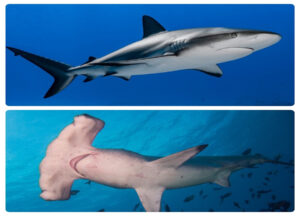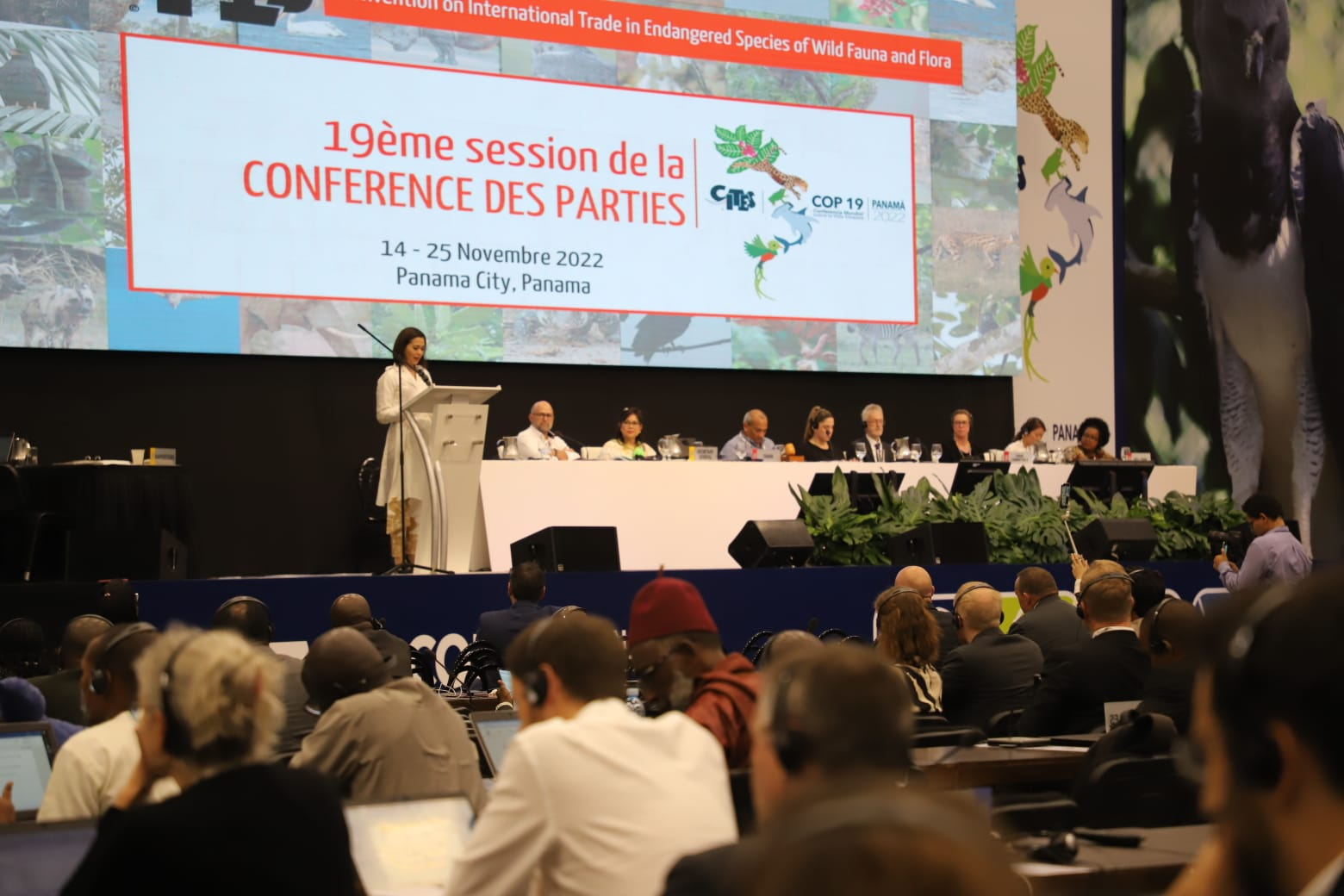The 184 member countries of the Convention on International Trade in Endangered Species of Wild Fauna and Flora (CITES) that participated in the 19th edition of the Conference of the Parties (COP19), held in November in Panama, agreed to tighten protection standards for new species of wild fauna and flora that are at risk, CITES indicated in a statement.
“It’s a big step, but it’s going to be slow going,” Eliana Molineros, president of the Sacha Project foundation, an Ecuadorian organization that rescues and rehabilitate wildlife and seeks to curb wildlife trafficking, told Diálogo on November 29. “Although CITES helps to prosecute wildlife trafficking cases, this tool alone is not all that’s needed.”
The agreement covers the protection of 500 species such as sharks, turtles, lizards, birds, frogs, fish, and more than a hundred tree species. CITES regulations are designed to guarantee the sustainability of these species by regulating international trade, Panama’s Ministry of Environment said in a statement.
The regulations “will make it possible to register international movements, systematize more information, and have more tools to carry out analyses, observe trends, and develop better conservation strategies,” Adrian Reuter, senior advisor to the New York-based nongovernmental organization Wildlife Conservation Society (WCS), told environmental journalism platform Mongabay.

Because of the huge profits, crimes such as illegal fishing, logging, and wildlife trafficking rank high within transnational criminal organizations. In addition to diminishing biological diversity, these crimes affect human health, security, and sustainable development, according to the United Nations Office on Drugs and Crime (UNODC).
Latin America is home to 40 percent of the world’s biodiversity and about 25 percent of the world’s endangered species, London-based journalism platform Diálogo Chino reported. The Americas was the region with the highest number of initiatives approved at the COP19 meeting, according to the Panamanian Ministry of Environment.
Fins trafficking
At the summit, governments approved the regulation of trade in 54 species of requiem and hammerhead sharks, the most commonly killed for their fins, which will drastically restrict their smuggling around the world, AFP reported. Sharks have declined in numbers by as much as 70 percent over the past 50 years, CITES said. Member countries have a year to adapt their legislation and prepare their strategies against shark fin trafficking, Reuters reported.
Thousands of tons of shark fins are shipped from South America to Hong Kong, China, according to Peruvian investigative journalism platform Ojo Público. However, in 2021, “more than 90 percent of shark fin imports in Hong Kong were re-exported to mainland China,” Loby Hau of the World Wildlife Fund (WWF) in Hong Kong told digital news site De Perú. In addition, Chinese state-owned fishing companies have been accused of using banned gear to illegally catch sharks in international waters, slicing off the fins or shark finning, a practiced outlawed in many countries, as well as secretly catching more sharks than officially reported, a Mongabay investigation published on November 1 found.
“This problem goes beyond officials, beyond public institutions,” Molineros said. “Beyond the legislative tools that exist; if there are not [enough] trained officials to apply them […] with the same speed with which crimes against wildlife and the environment happen, they meaningless.”
Camouflage and black market
The conference established the protection of the Shihuahuaco, one of the oldest and largest trees in the Peruvian Amazon, among other species of trees. Large quantities of this species are extracted illegally, Peruvian website Actualidad Ambiental reported. It is estimated that by 2025 the Shihuahuaco could be in danger of extinction, Peruvian media Caretas added.
According to Interpol, the illegal timber industry generates $152 billion annually. It is responsible for 90 percent of deforestation in some countries, attracts transnational criminal organizations, and fuels conflicts in forest regions where criminals compete for markets.
In addition, timber shipments are used to camouflage arms and drug trafficking. This type of illegal trafficking is difficult for law enforcement to detect, as moving the wood is burdensome because of its weight and size, WWF-Colombia indicated.
Empower
CITES also approved the strict control of trade in all species of glass frog and “casquito” mud turtles, to curb the illegal trade in endangered exotic pets. According to UNODC, ending species trafficking is a fundamental step to protect biodiversity and the rule of law.
“The most important thing is to empower and make ordinary citizens aware of wildlife trafficking, so that they can recognize, identify, and report it, as well as simplify the way to report it,” Molineros concluded. “The first step to judicialization of crimes is denunciation.”









